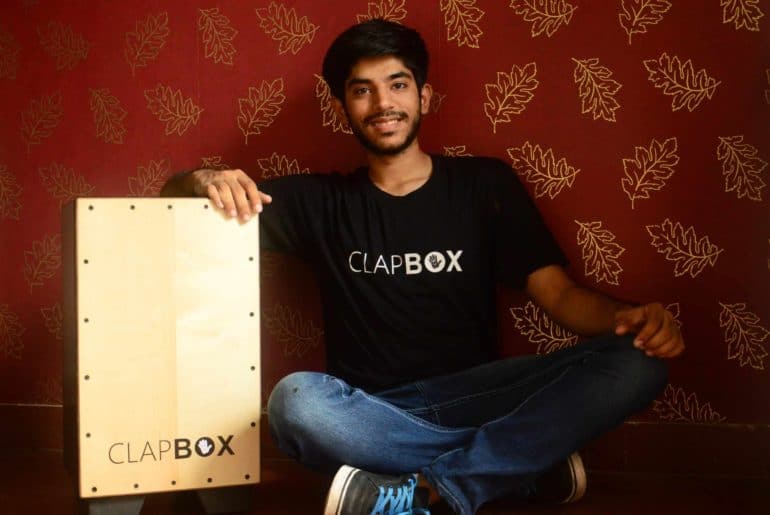For a while now, Delhi University’s alumni have come up with plenty of successful ventures. So, is it because the varsity fosters entrepreneurship or the college students establish themselves completely on their own?
With the prevailing popularity of shows like TVF Pitchers and MTV Dropout Pvt. Ltd., we can tell that for a while now millennials have been obsessing over entrepreneurship. The whole concept of startups is based on idea of building an empire from the scratch, and if you are a part of University of Delhi (DU) then chances are you know at least one person (the ones hurdling over their laptops, always talking about their business idea, but guarding important details and forever hunting for funds) who aspires to kick start a start-up.
In 2014, a joint initiative of University Of Delhi and Ministry Of Medium, Small & Medium Enterprises (MSME) started Technology Business Incubator (DUCIC-TBI) at Cluster Innovation (CIC) Centre. The main objective of this initiative was to encourage students to try out their innovative ideas (processes and/or products) at the laboratory or workshop stage and beyond, to carry forward the idea from its mere conception to know-how and then to-do-how stage.
Talking to DU Beat about the work done by the incubation center since its inception, Professor Bibudananda Biswal, Manager of Technology Business Incubator (DUCIC-TBI) said, “We started off with incubating seven start-up projects that were funded by Ministry of MSME. Subsequently, we added two more startups. Out of these nine projects, four are today companies with positive cash flow. One received an accelerator funding and currently operates from Bangalore. One is in an advanced round of investment negotiations. The other two fund themselves on bootstrapping model. Each of these companies has both rapid and high growth potential.”
He also added that the projects which added after the initial five ones were only provided co-working space with computational facilities. We have not followed up with incubating more projects because of infrastructure and funding issues.
Manish Narayan, a Delhi University graduate and one of the founders of successful venture Sign My Tour app launched by Audible India (now Inclusio) that aids deaf and mute people to access historical monuments of Delhi, credits Technology Business Incubator(DUCIC-TBI) in providing them with financial assistance, infrastructural facilities, and mentoring sessions. “There are many start-ups who have reached heights with the help of universities. The universities need a proper channel to identify this kind of talent and should conduct a comprehensive evaluation to find which start-ups they should fund,” Manish said.
Kirti Krishan, Co-founder and Chief Operating Officer of Pollination Project Grant winning start-up Lithics, (an online portal for handmade and indigenous products) believes that Delhi Universtiy’s Incubation centers at Par with any other Incubation center in the country. “The amazing guidance and help at Delhi University in realizing our dream by providing amazing infrastructure or finding us right mentors has been immense and has helped us in getting pass huge hindrances in operations,” he further gushed in praise.
Hello Meal, a Vijay Nagar based food delivery service founded and run by alumni of Swami Shraddhanand College have carved a niche for themselves owing to their pocket-friendly rates and impeccable service. The venture received a recommendation letter from Centre for Innovation and Entrepreneurial Leadership (CIEL) of Atma Ram Sanatan Dharma College (ARSD). Tarun Kanti Das, a founding member told DU Beat, “We often visit ARSD College to talk to Dr. Rajeev Singh regarding our business. I’m also trying to get some assistance from DU in terms of promotion and financial aid.”
If we look around that are plenty of success stories coming out of varsity incubation centers. However, many people still believe that universities should not invest money, either through financial aid or infrastructure support, in amateur, college-level start-ups because a majority of businesses that come out of these incubation centers eventually fail.
Professor Bibudananda Biswal, Manager of DUCIC-TBI, refutes such notions and asserts, “The claim that “businesses that come of out these incubation centers eventually fail” is nonsense. Start-ups fail everywhere, even after a series of funding. The money spent on a college level incubation is insignificant. This is only to nurture an innovative idea. The real business and profit happen long after the incubation process. This, most often, depends on the entrepreneurial skills of the promoters of the start-up.”
Lloyd E. Shefsky famously said, “Entrepreneurs are made, not born”. Perhaps, this holds true for Delhi University too, the culture of startup harvested by setting up of incubation centers does produce an array of accomplished and aspiring ventures. However, with policies of fund cut in education, it is under threat.
Feature Image Credits: Business World
Niharika Dabral



